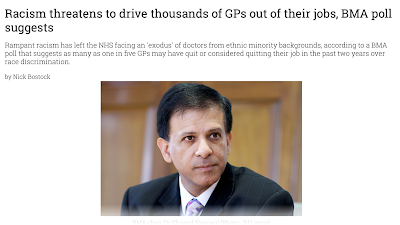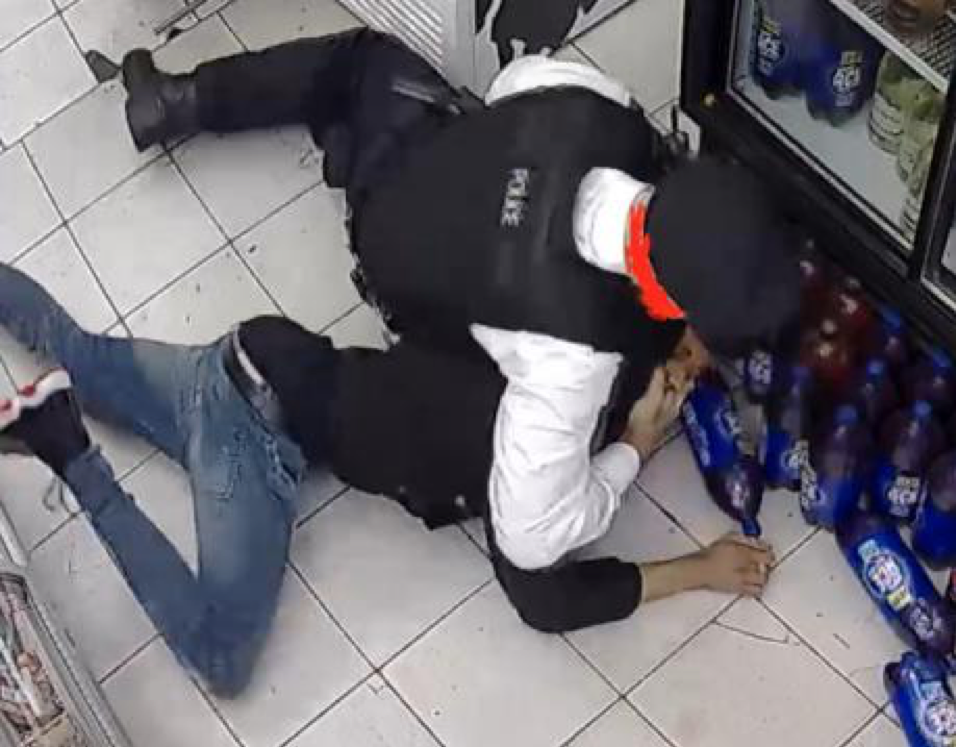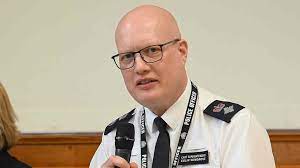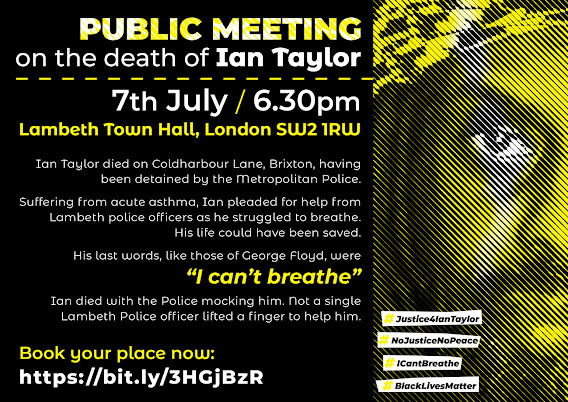My name is Dr Valentine Udoye, the background and the origination of my persecution by GMC
are as follows:
I am a full registered Medical Practitioner with the General Medical Council, with registration no (6094869) since 2007
I graduated from Nnamdi Azikiwe University -Nigeria in 1999, where I was awarded MBBS. I registered with the Nigerian Medical Council (FM 27,449) in 1999. I started my medical practice with Nnamdi Azikiwe where I worked as a House Officer from 1999- Jan 2001, after which I moved to practice as a General Practitioner in Nigeria.
I worked as a GP in various hospitals in Nigeria before coming to UK in 2005.
The reason for this move was due to a horrific bandit attack on one of my trips on the motorway, where I witnessed murder, rape and beatings by bandits up to 30 in number. After coming out unhurt, this led to the decision to leave Nigeria for a better life for my family in the UK.
From 2005-2010, I did clinical attachments and worked as a trust grade doctor - FY1 and FY2 levels in various hospitals in the UK.
Due to my experience in general practice in Nigeria, I wanted to continue my medical practice here in the UK as a General Practitioner. On enquiry, I did understand that I could practice as a GP in the UK via two routes:
1. (a) By obtaining a certificate of completion of training in General Practice (CCT) or
2. (b) By obtaining a certificate of eligibility for GP registration as an international GP
Having weighed my options in terms of length of time and cost, I decided to pursue a CCT route. I applied for GP training, and I was accepted to do the training in Scotland. During my GP training, I had to apply for a visa every time I changed hospitals, which I couldn't afford as a father of a young family.
Therefore, I changed to a Tier 1 visa to avoid frequent visa applications.
Unfortunately, I realised I couldn't work as a trainee under this Tier 1 category.
Thus, I decided to stop GP training.
In light of this dilemma, I decided to develop my GP skills by working in various departments as a non-trainee from 2011 to 2014. Having a wide experience in different fields of medicine, I decided to renew my desire to go for registration as a GP with GMC.
Because of my experience in 2011, I decided to take the CEGPR route ( Certificate of Eligibility for GP registration). The information on the RCGP website stated that exams for membership could alternatively be taken abroad in countries such as Dubai.
I contacted the Royal College of General Practitioners Office in Dubai, and I was informed of the requirements I had to meet in order to sit the MRCG exam, as well as the exam curriculum. I noted that the exam curriculum in the UK is the same curriculum obtainable in Dubai.
I prepared for the exams from late 2014 to 2015, and I flew to Dubai on three occasions to take some of the preparatory courses in accordance with the Curriculum. Having finished the courses in Dubai, I took the MRCGP exams. I passed all the courses, including AKT & CSA. I was thereafter awarded MRCGP(INT).
This indicates that notwithstanding my qualification as a GP in Nigeria, I am now a certified General medical practitioner accredited by the Royal College of General Practitioners in the UK and worldwide. This certificate satisfies the criteria for registration as a GP with GMC. I, therefore, made an application to the GMC in 2016 for a certificate of Eligibility for GP registration.
However, The GMC, in consideration of my application, refused my registration on the grounds that I needed more training and experience in certain areas of general practice, which the GMC recommended could be fulfilled through general practice training in the UK; or through General Practice work experience in the UK or gain the necessary competencies in the posts other than GP training.
Determined to practice as a GP, I found that the GMC, in their refusal decision, stated that the responsibility to undertake any further training to meet up with their recommendations rests in me. I enquired from the NHS Health Education as to what I should do next to be able to practice as a GP.
I was advised to contact the Head of Continuing Practice, Postgraduate School of Primary Care Health Education England North East, in the name of Dr Iain Lawther.
In April 2016, I contacted him with an enquiry about the best way for me to proceed to GP Practice in the UK. My email enquiry which clearly set out my dilemmatic situation was provided to GMC. Dr Lawther (whom the NHS Officers I contacted for advice directed me to) responded to my enquiry and clearly and rightly acknowledged that I, as an international GP, was entitled to take the route of Induction via the NHS Induction and Refreshers Scheme programme (I & R Scheme) his organisation, Health Education England runs.
Dr Lawther made it clear to me that the I& R scheme is for those GPs who were trained and qualified abroad and who would want to enter the UK to practice as GP. He directed that there were, however, some exams and processes to undertake, which included interviews, pre-assessment exams, and clinical placements.
When it became clear that I was entitled to undertake further training under the I&R scheme, all the officers of the NHS continuing education and speciality programme was involved in making it possible for me to undertake this training, and I was so grateful to all of them particularly Dr Lawther, Ellaine Griffiths and Dr Tranter.
I was asked to undertake the first pre-assessment exam in stimulatory Surgery, which I did and had a successful outcome. I was told to proceed to clinical placement in Surgery as part of the scheme. I was eventually sent for I & R placement at Mansion House Surgery under the supervision of Dr Richard Tranter, who is a GP training Programme Director in the North East, for the remaining part of the training scheme.
I worked hard to write all the assessments and works assigned to me by my clinical supervisor -Dr Tranter, and at the end of the 6 months of training, I passed all the courses, and I succeeded. I was given the structure report necessary for my registration as a GP with the GMC. As soon as my structural report was sent to Health Education England North East, a request for full Performances List inclusion was requested.
Then, an allegation from nowhere was fabricated that I was working as a full GP while I was undertaking the training placement as part of the I & R scheme at Mansion House Surgery. I could not believe what was happening, and before I knew it, this was escalated to GMC, who initiated an investigation and immediately moved to the Interim Tribunal of MPTS to get interim restriction orders against me on the basis of protecting public interests and patient safety.
My practice was restricted for 15 months; however, my lawyers made an application for review in December 2018 to IOT of the MPTS, which revoked the restrictions order on the basis that even if I had practised as a GP as alleged for the 6 months training placement, there was no risks report or any concerns raised during the training period and more importantly, I have finished the training. Therefore, there was no need for any restriction since I moved back to my employer to continue my work as a locum specialist Doctor.
I thought that by the MPTS IOT decision, GMC would agree with the IoT reasoning and its order of revocation and leave me alone. Unfortunately, my lawyer received a letter from GMC in January 2019 that they would be proceeding to drag me to Medical Practitioners Tribunal services (MPTS) for Fitness to practice to investigate me on totally new allegations.
The allegations were that whilst I was undertaking the training placement at the Mansion surgery, I was paid the I & R scheme bursary, which the GMC argued I was not entitled to receive on the basis that I was not entitled to undertake the I & R scheme programme.
They alleged that by my receiving the bursary, I have been dishonest.
The GMC further alleged that during the filling of my application for the I & R scheme form in 2016, I had ticked yes to the question “are you on the GP GMC register” which was a one-off mistake among all other similar questions I had ticked correctly.
That by me ticking yes, I have been dishonest. These allegations were subjected to MPTS proceedings from January 2019 until January 2020, when the MPTS dismissed all the allegations without finding even misconduct on my part. I thought I was resurrected from death, and it was the end of my trial part of life, but alas.
Despite the fact that the MPTS proceedings lasted for 2 years before I was finally acquitted of all GMC charges on January 2020, and despite the huge financial burden I personally faced throughout the duration of the GMC proceeding, the GMC appealed the MPTS to the High Court.
All my sickness resurfaced, and I was struggling all the while with emotional, psychological and financial hazards, including the impacts which led to the breakup of my marriage.
That effect has not left me to date.
Then, the High Court, rather than acknowledging that the MPTS had heard the 8 witnesses presented by GMC and all of them did not blame me, including the Lead and the Director of Health Education England North East who runs the I & R scheme, ignored all of these and set aside the MPTS determination and remitted it back to a different MPTS panel albeit not on grounds of public interest or patient safety reasons but only on the technicality that MPTS did not understand the GMC case.
The remittal hearing has been again listed for 13 days long hearing in October 2022, which in effect subjected me further to another huge financial hardship, psychological and emotional trauma. I have been struggling to sleep for the past 4 years. My marriage has broken down, and my children have been confused about what has been happening to me.
I really need help.
I am facing serious emotional, psychological and financial trauma because of the GMC’s unwarranted attacks against me. GMC’s attacks on me are without any justified reasons. I have never practised as a GP during the I & R training placement; rather, I was under the supervision of a GP trainer Dr Tranter who also confirmed that I was his candidate and an I & R GP trainee.
GMC’s unwarranted and aggravated atrocious attacks on me and other BAME doctors need to be brought to the attention of the public with a view to stopping their unnecessary attacks on medical doctors in the UK, particularly against BAME doctors.
This has destroyed my family, what I have worked for, and me as a person. Additionally, I am struggling now to live with a lot of debts accruing from legal costs in defence of GMC attacks and persecutions.
Call to action.














